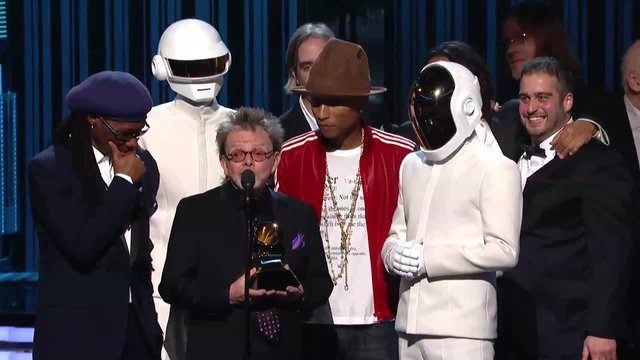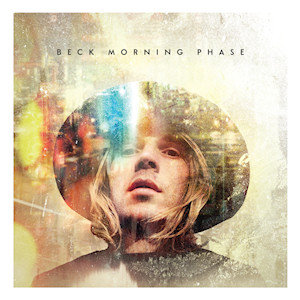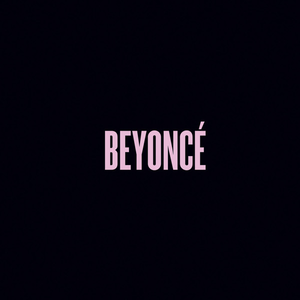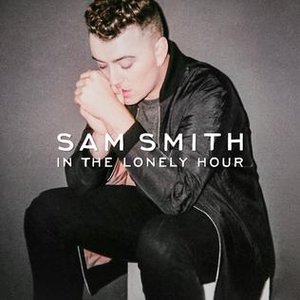
One of these people may be winning their own Album of the Year Grammy this year, and it isn’t one of the dudes in helmets.
Last year, I wrote a review of all five Grammy nominees for Album of the Year. This year, in the Addison Recorder’s never-ending endeavor to always stay culturally abreast, I’m doing it again. (I’m also doing it again because no one else is crazy enough to try this.)
 The one thing I knew going in to Morning Phase was that it was a companion piece, with the same musicians and composition style, to Beck’s now-classic Sea Change. While Sea Change was a break-up album, Morning Phase plays like an aural depiction of Beck’s journey to marriage and fatherhood, in two parts marked by the lovely instrumental interludes “Cycle” and “Phase.” The songs following “Cycle” are reminiscent of Van Dyke Parks’s Song Cycle and Brian Wilson’s more experimental moments: melodies and arrangements turn on a dime with instruments popping up and quickly fading out, the lyrics are minimal but packed with intricate meaning, and the vocal harmonies are gorgeous (especially on “Heart is a Drum”), sometimes making up for overly obtuse composition. Then, after “Phase,” the record unexpectedly closes with three magnificent, more formally structured numbers—“Turn Away,” “Country Bound,” and “Waking Light”—that feel like the last stages of a successful journey to inner peace. I have to stand up and cheer for an album that builds on its mood and themes and grows stronger over its duration.
The one thing I knew going in to Morning Phase was that it was a companion piece, with the same musicians and composition style, to Beck’s now-classic Sea Change. While Sea Change was a break-up album, Morning Phase plays like an aural depiction of Beck’s journey to marriage and fatherhood, in two parts marked by the lovely instrumental interludes “Cycle” and “Phase.” The songs following “Cycle” are reminiscent of Van Dyke Parks’s Song Cycle and Brian Wilson’s more experimental moments: melodies and arrangements turn on a dime with instruments popping up and quickly fading out, the lyrics are minimal but packed with intricate meaning, and the vocal harmonies are gorgeous (especially on “Heart is a Drum”), sometimes making up for overly obtuse composition. Then, after “Phase,” the record unexpectedly closes with three magnificent, more formally structured numbers—“Turn Away,” “Country Bound,” and “Waking Light”—that feel like the last stages of a successful journey to inner peace. I have to stand up and cheer for an album that builds on its mood and themes and grows stronger over its duration.
 I listened to Beyonce purely as a piece of music, without watching the videos accompanying every song, which might have been a mistake. Beyonce Knowles’s fifth album is bursting with virtues, especially her lyrics: the record is a manifesto of feminism, empowerment, the trials and joys of marriage and motherhood, and the need for emotional and sexual satisfaction. These ideas are expressed with her gorgeous voice in songs such as the “Partition”/”Jealous”/”Rocket” sequence, which is erotically powerful enough to steam every window, and tracks such as “Pretty Hurts” and “Fearless” (the latter featuring a spoken segment by novelist Chimamanda Ngozi Adichie) in which Knowles urges women to love themselves and never let anything hold them back from their dreams. What hurts is when she tries to rap or tweak her vocal style, as on the dreadfully annoying “No Angel,” and a production that seems to use the same drum and synthesizer beats and tones over and over until the final two songs turn up the gospel for a slightly goopy but refreshing change. “XO” is my favorite song mostly because it boasts a different arrangement from the rest of the LP. Ultimately, Beyonce is a good listen but also a long, repetitive, potentially tiresome one. Maybe the videos helped.
I listened to Beyonce purely as a piece of music, without watching the videos accompanying every song, which might have been a mistake. Beyonce Knowles’s fifth album is bursting with virtues, especially her lyrics: the record is a manifesto of feminism, empowerment, the trials and joys of marriage and motherhood, and the need for emotional and sexual satisfaction. These ideas are expressed with her gorgeous voice in songs such as the “Partition”/”Jealous”/”Rocket” sequence, which is erotically powerful enough to steam every window, and tracks such as “Pretty Hurts” and “Fearless” (the latter featuring a spoken segment by novelist Chimamanda Ngozi Adichie) in which Knowles urges women to love themselves and never let anything hold them back from their dreams. What hurts is when she tries to rap or tweak her vocal style, as on the dreadfully annoying “No Angel,” and a production that seems to use the same drum and synthesizer beats and tones over and over until the final two songs turn up the gospel for a slightly goopy but refreshing change. “XO” is my favorite song mostly because it boasts a different arrangement from the rest of the LP. Ultimately, Beyonce is a good listen but also a long, repetitive, potentially tiresome one. Maybe the videos helped.
 In the Lonely Hour is a recreation of the great Atlantic, Bell, and Stax soul albums of the 60s and 70s, with deep, grooving rhythms, crackling guitar, touches of horns and strings, and a mood of howling, pleading, lovelorn loneliness. Neither the composition nor the lyrics offer anything that was not said back then–the music is good but (except for one case) nothing special and the lyrics retread the heartache territory Otis Redding so excelled at–so one may wonder why this close-to-redundant album exists and became a hit. The answer lies in 22 year-old Sam Smith’s extraordinary voice that bellows and soars and fills every syllable with romantic longing. It’s impossible to not be drawn in by Smith, and he further ups the ante by keeping the record to a fat-free 33 minutes (as long as the old albums would have been) and turning in some songs that rise above the merely good. “Money on My Mind,” “I’m Not the Only One,” and “Like I Can” are potential soul perennials, but “Stay With Me,” an overwhelmingly desperate cry for only one night of connection to another person, with Smith’s giant voice backed by soaring strings and a choir, is a pop masterpiece where every single element clicks exactly right. (A remix by Darkchild which replaces the strings with organ and makes the band more central was nominated for Record of the Year.)
In the Lonely Hour is a recreation of the great Atlantic, Bell, and Stax soul albums of the 60s and 70s, with deep, grooving rhythms, crackling guitar, touches of horns and strings, and a mood of howling, pleading, lovelorn loneliness. Neither the composition nor the lyrics offer anything that was not said back then–the music is good but (except for one case) nothing special and the lyrics retread the heartache territory Otis Redding so excelled at–so one may wonder why this close-to-redundant album exists and became a hit. The answer lies in 22 year-old Sam Smith’s extraordinary voice that bellows and soars and fills every syllable with romantic longing. It’s impossible to not be drawn in by Smith, and he further ups the ante by keeping the record to a fat-free 33 minutes (as long as the old albums would have been) and turning in some songs that rise above the merely good. “Money on My Mind,” “I’m Not the Only One,” and “Like I Can” are potential soul perennials, but “Stay With Me,” an overwhelmingly desperate cry for only one night of connection to another person, with Smith’s giant voice backed by soaring strings and a choir, is a pop masterpiece where every single element clicks exactly right. (A remix by Darkchild which replaces the strings with organ and makes the band more central was nominated for Record of the Year.)
Ed Sheeran is a fine lyricist who takes his loves and heartbreaks and finds lessons in them that make a listener think “Yes…I can relate.” This gift is evident throughout the chart-topping x (“Multiply”) on songs such as “Don’t” with its Harry Nilsson-style wordsmithery and the poetry of “Tenerife Sea.” The problem is that Sheeran lacks consistency and confidence. His melodic skills are hit-and-miss—“Tenerife Sea” has almost no memorable musical ideas—and his songs can be problematic—“Don’t” is actually terrible, despite superb construction, because he lambasts a casual partner for having sex with other men after he didn’t tell her he wanted to be really serious. Even worse, Sheeran seems to have no idea who he wants to be. The first few songs on x find him apparently thinking the world will end unless he strums his guitar as loud and fast as possible, but then he tries soul-inflected tunes, overwrought ballads, and, on “The Man,” some godawful rapping. There are highlights—“Sing” is hilarious and incessantly hook-laden, “Nina” is a rocking blast of self-deprecation, and “Thinking Out Loud” is charmingly romantic—but nothing comes close to his breakout single “The A Team,” a perfectly formed song full of an empathy and sincerity x noticeably lacks.
 Parts of Sheeran and Knowles’s albums were produced by Pharrell Williams, who also released his sophomore album G I R L, declaring it both a feminist statement and a tribute to 1970s and 80s music, along the lines of Daft Punk’s Random Access Memories (which he of course featured on). Both of Williams’s ambitions are only partially realized. Despite the life-affirming duet with Alicia Keys, “Know Who You Are,” Williams’s take on feminism mostly seems to be that strong, confident women are the subject of his fantasies and he can’t wait to get it on with them in every way possible. Further, Williams doesn’t have the voice of a Sam Smith or Beyonce Knowles, nor Daft Punk’s ability to put highly original stamps on classic themes, so G I R L mostly sounds like recycled, half-remembered bursts of soul, funk, and classic rock melodies while Williams gamely keeps up with his narratives of mutual sexual conquest. The album gets old very fast. There are two highlights: the perpetually irresistible “Happy” (the one song that breaks from the overall concept) and “Gust of Wind,” a reunion with Daft Punk which recalls Electric Light Orchestra but feels like something new and inventive with complex, winding arrangements—which again does not fit with the rest of the album.
Parts of Sheeran and Knowles’s albums were produced by Pharrell Williams, who also released his sophomore album G I R L, declaring it both a feminist statement and a tribute to 1970s and 80s music, along the lines of Daft Punk’s Random Access Memories (which he of course featured on). Both of Williams’s ambitions are only partially realized. Despite the life-affirming duet with Alicia Keys, “Know Who You Are,” Williams’s take on feminism mostly seems to be that strong, confident women are the subject of his fantasies and he can’t wait to get it on with them in every way possible. Further, Williams doesn’t have the voice of a Sam Smith or Beyonce Knowles, nor Daft Punk’s ability to put highly original stamps on classic themes, so G I R L mostly sounds like recycled, half-remembered bursts of soul, funk, and classic rock melodies while Williams gamely keeps up with his narratives of mutual sexual conquest. The album gets old very fast. There are two highlights: the perpetually irresistible “Happy” (the one song that breaks from the overall concept) and “Gust of Wind,” a reunion with Daft Punk which recalls Electric Light Orchestra but feels like something new and inventive with complex, winding arrangements—which again does not fit with the rest of the album.
My personal favorite is Morning Phase, but it was the least successful and is very difficult to emotionally enter for the first 70% of it, and the other four albums are nothing special the way last year’s class was (at least good kid, m.A.A.d. city, Random Access Memories, and Red), so…we’re in for a major toss-up to be decided by the Grammy voters’ whims. Due to its brevity and neo-retroism, In the Lonely Hour may have the inside track, but we’ll only be speculating until February 8.
Photographs from Wikipedia





